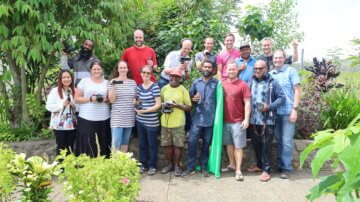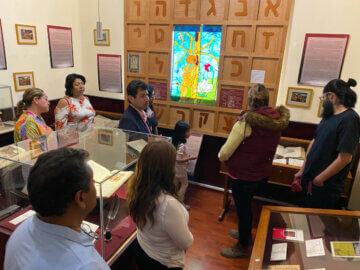Considering the future of the Bible translation movement
In April 2020 Alliance organisations were asked how they were coping with the COVID-19 pandemic and how they saw this impacting their part in the Bible translation movement. We believe it is important to continue this conversation with all parts of the Alliance as together we seek to understand how the world is changing and how we are adapting.
Background
The report from the survey carried out into The Future of the Bible Translation Movement can be accessed and downloaded from the Alliance website here. The report is in English but Google offers a tool for translating documents that you can access here.
The report begins with a two-page executive summary, followed by several pages of detailed responses compiled from Alliance Organisations. The Executive Summary may be the most helpful section for the discussion process suggested here, but you have access to the responses as an additional reference.
Discussion Process
The report provides us all with an opportunity to listen to and learn from Alliance organizations around the world. Now that the results have been compiled, the next step is to focus on key issues impacting the Alliance as we move into the future.
Given the constraints of COVID-19, we are asking all Alliance organisations to find the best process for holding your own internal discussion based upon the report. This could be with leaders, staff, your Board, members or a mixture of all. This discussion could be held in one meeting or many, and be face-to-face or virtual. Whatever works best for you.
We would suggest the following questions to help guide your discussion as these will be the basis of a broader conversation to come later.
- Identify the three issues that will have the most important impact on the future of the Bible translation movement.
- For each of these three issues, discuss why this issue is important to the future of the Bible translation movement.
- How will each of these issues impact your organisation as you participate in the Bible translation movement?
- How should your organisation appropriately respond to each of these issues, in order for you to make your best contribution to the Bible translation movement?
Take notes of your discussion in Word. Please send the notes by email attachment to Bryan Harmelink and Susan van Wynen by 28 August 2020.
As the final step of this process, please choose one person to represent your organisation in a broader online discussion in October/November. Please include this person’s name and email address with the notes requested above.
May the Lord grant us all wisdom and discernment as we discuss these things and consider how we can best participate in his mission in the world through Bible translation.
The latest
View all articles
03/2024 Pacific: Papua New Guinea
Informing, teaching, inspiring: PNG workshop teaches video storytelling for language communities
PNG workshop teaches video storytelling for language communities
Read more
02/2024 Global
Looking ahead at 2024
As the year unfolds, we marvel at the work of God in our rapidly changing world. And, we look forward to a number of gatherings and conversations intended to draw us together.
Read more
01/2024 Americas
Telling the Bible's Story
It may come as a surprise that a museum is among the Wycliffe Global Alliance organisations.
Read more